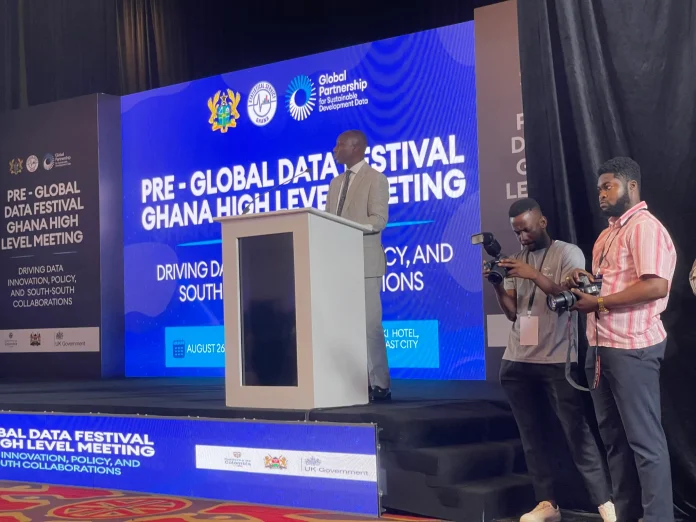International officials gathered in Accra this week called for massive new investments in Africa’s data infrastructure, warning that weak information systems are blocking the continent’s development progress.
The appeal came during a high-level meeting preparing for Kenya’s 2026 Global Data Festival, where leaders from Ghana, Kenya, Colombia and the United Nations stressed that better data collection could unlock billions in economic returns across African economies.
UN Resident Coordinator Zia Choudhury told delegates that every dollar spent on data systems generates 32 dollars in economic benefits, citing recent analysis that shows stronger information networks drive policy improvements and government accountability.
Only 15 percent of global development targets are currently on track for 2030 completion, with poor data collection identified as a major obstacle to measuring and achieving progress goals.
Ghana’s Vice President Jane Naana Opoku-Agyemang highlighted the country’s economic recovery as evidence of data-driven policy success. She pointed to 5.3 percent GDP growth in early 2025 and falling inflation rates as proof that evidence-based decision making delivers results.
The government has launched several technology initiatives including a program to train one million young people in coding skills and satellite monitoring systems for agriculture and coastal management. Ghana has also established new regulations for gold trading through a dedicated oversight body.
Kenya’s Foreign Affairs Principal Secretary Korir Sing’Oei emphasized that collaboration between government agencies and private organizations remains essential for effective data programs. He said Kenya’s experience with mobile-based statistics and tax modernization offers lessons for other African countries.
Colombian representatives stressed that inclusive data collection particularly benefits indigenous and rural communities often overlooked by traditional surveys. They argued that South-South cooperation between developing countries produces more practical innovations than conventional aid models.
Ghana’s Government Statistician Alhassan Iddrisu described ongoing reforms to embed evidence use across all government departments. The country has signed 26 new data-sharing agreements and developed a national roadmap for data science applications.
Claire Melamed from the Global Partnership for Sustainable Development Data called for sustained political commitment to long-term financing rather than short-term project funding. She identified artificial intelligence governance and climate action as priority areas requiring stronger data foundations.
The meeting highlighted growing recognition that Africa’s economic transformation depends on modernizing how governments collect, analyze and use information for policy decisions.
Source: newsghana.com.gh











